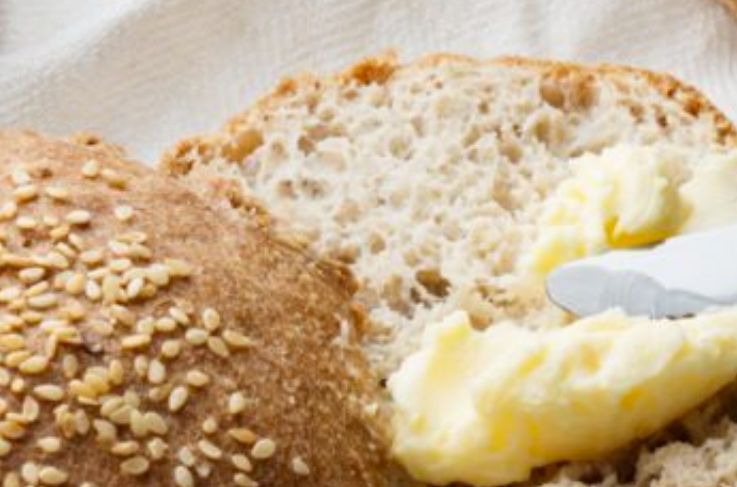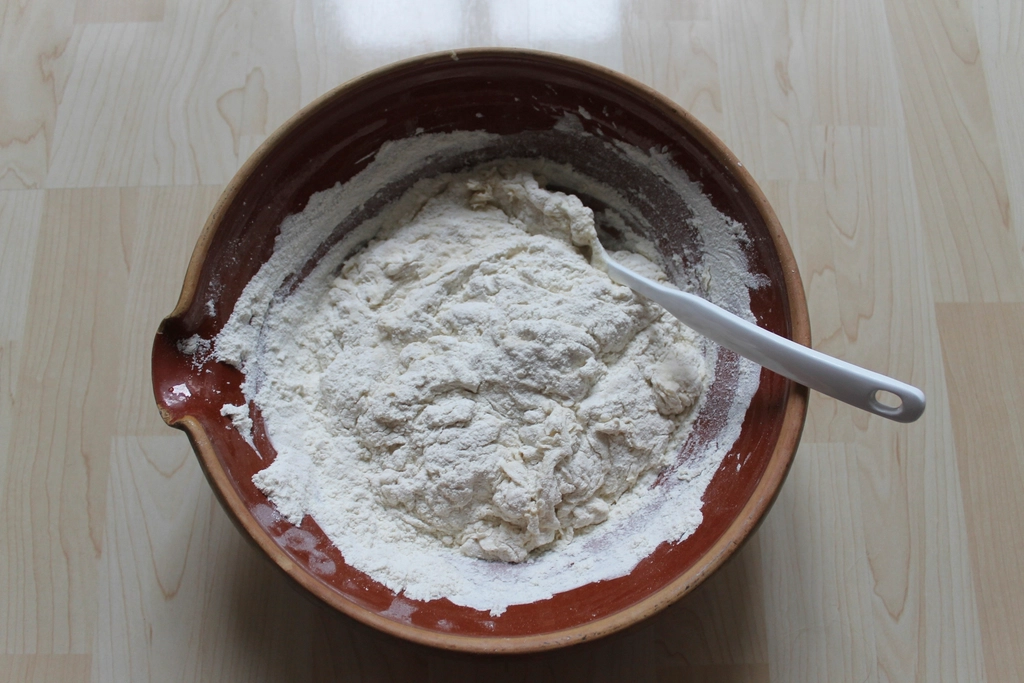
Have you ever heard how people from the US go to Italy, eat pizza, bread and pasta and have none of the bloating, weight gain or fatigue? Then, how Italians come to the US, eat the same foods but gain 10-20 lbs, feel terrible and have to quit eating their usual diet altogether?
It’s all about the kind of grain and how the grain is processed! In the US, we refine, bleach and strip our grains of all nutritional value so it lasts longer on the shelves. There is also the concern of the pesticides used as well as the genetic modification. By the time, our flour, breads, and pastas are put on the shelves for sale, they are hardly a real food! In fact, most breads and pastas have to be fortified to be legally considered a food.

For the record, I do not consider grains an essential part of a human-specific diet. Moreover, if you are needing to lose excess fat, grains need to be fully eliminated as they are still a carbohydrate source of energy. However, for those who’ve earned a treat and want to occasionally dip into the fun world of grains…Unrefined grain is the way to go!
Book Recommendation: “Grain Brain” by Dr. Perlmutter, MD
Unrefined Flour Will Set You Free
Unrefined flour, a hidden gem in the world of grains, holds an abundance of nutritional benefits that often go unnoticed. Unlike its refined counterpart, which undergoes extensive processing that strips away vital nutrients, unrefined flour retains the whole grain, including the germ, endosperm, and bran. This holistic approach to milling preserves the integrity of the grain, offering a wealth of health-promoting properties.
Unrefined flour is a nutritional powerhouse, boasting a rich array of essential nutrients. It is a significant source of:
- Fiber: Aids digestion, promotes satiety, and helps regulate blood sugar levels. (Fiber is NOT an Essential in a human-specific diet.)
- Vitamins: Abundant in B vitamins (thiamin, riboflavin, niacin, and folate), crucial for energy metabolism, nerve function, and cell growth.
- Minerals: Rich in iron, magnesium, zinc, and selenium, essential for overall health and well-being.
- Antioxidants: Contains antioxidants like ferulic acid, which protects cells from damage caused by free radicals.
- Protein: most versions contain 10-13% protein.
Health Benefits of Unrefined Flour
Replacing your refined flour with unrefined flour into your diet offers a multitude of health benefits:
- Improved Digestion: The abundant fiber content promotes regular bowel movements, reducing the risk of constipation and other digestive issues.
- Reduced Risk of Chronic Diseases: The high fiber and antioxidant content has been linked to a lower risk of chronic diseases such as heart disease, stroke, and type 2 diabetes.
- Stable Blood Sugar Levels: The slow-digesting nature of fiber helps regulate blood sugar levels, preventing spikes and crashes.
- Enhanced Satiety: The fiber in unrefined flour promotes satiety, keeping you feeling fuller for longer and reducing overall calorie intake.
- Improved Nutrient Absorption: The presence of the germ and bran in unrefined flour provides a source of essential nutrients that are often lost during refining.
Types of Unrefined Flour
Unrefined flour comes in various types, each with its unique flavor and nutritional profile:
- Whole Wheat Flour: Made from the entire wheat kernel, it has a slightly nutty flavor and is a good source of fiber, vitamins, and minerals.
- Einkorn Flour: the original grain that humans started with boasting a higher protein content and a fan-base of gluten sensitive people that can use this without a problem!
- Spelt Flour: An ancient grain with a mild, slightly sweet flavor, it is high in protein and contains a range of vitamins and minerals.
- Rye Flour: Made from rye berries, it has a slightly sour flavor and is a good source of fiber and B vitamins.
- Oat Flour: Ground from whole oats, it has a mild, slightly nutty flavor and is high in soluble fiber, which helps lower cholesterol levels.
- Buckwheat Flour: Made from buckwheat groats, it is gluten-free and a good source of protein, fiber, and antioxidants.
Incorporating Unrefined Flour into Your Diet
Incorporating unrefined flour into your diet is easy and versatile. Here are some tips:
- Bread and Pastries: Use unrefined flour to make whole wheat bread, muffins, cookies, and other baked goods.
- Pizza Crust: Create a flavorful and nutritious pizza crust using whole wheat or spelt flour.
- Pasta: Swap out refined pasta for whole wheat or brown rice pasta made with unrefined flour.
- Pancakes and Waffles: Start your day with a hearty breakfast by using unrefined flour in your pancake and waffle batter.
Choosing the Right Unrefined Flour
When choosing unrefined flour, look for the following:
- Organic: Opt for organic flour to avoid exposure to pesticides and herbicides.
- Whole Grain: Ensure the flour is labeled “whole grain” and contains the entire kernel.
- Stone-Ground: Stone-ground flour retains more nutrients than roller-milled flour.
- Fresh: Choose flour that has been recently milled to ensure optimal freshness and nutritional value.
My source is Farm2Flour right here in the USA! They use a regenerative farming method that is organic and freshly milled (stone milled) without any chemicals. You no longer have to order your flour from Italy! https://farm2flour.com
Debunking Myths about Unrefined Flour
There are several myths surrounding unrefined flour that can deter people from using it:
- I am gluten-sensitive and can’t consume grains: It’s not always the gluten that is causing digestive and systemic symptoms of auto-immunity. These disorders were not present prior to modern processing. Unrefined grains are frequently found to not cause problems in people with gluten-sensitive and related disorders.
- Unrefined Flour is Dense and Heavy: Whole wheat flour is slightly denser than refined flour, but it can still be used to make light and fluffy baked goods with the right techniques.
- Unrefined Flour is Difficult to Digest: The fiber content in unrefined flour can be a concern for some people, but it is important to note that the fiber is soluble and insoluble, which aids digestion.
- Unrefined Flour is Not as Versatile: Unrefined flour can be used in a wide variety of recipes, from bread to pastries to pasta. It offers a unique flavor and nutritional profile that can enhance any dish.
Final Thoughts: Embracing the Goodness of Unrefined Flour
Unrefined flour is a nutritional powerhouse that offers a wealth of health benefits. By incorporating it into your diet in place of regular store-bought flour, you can enjoy a more nutritious, balanced, and satisfying eating experience without the worry. Whether you choose whole wheat, Einkorn (the original grain,) spelt, rye, oat, or buckwheat flour, there is an unrefined option to suit every taste and dietary preference.
To keep it simple, I keep all-purpose unrefined wheat flour on the ready. I cycle in Einkorn as it’s simply amazing in all recipes.
Embrace the goodness of unrefined flour and unlock a world of culinary and nutritional possibilities!
Frequently Asked Questions
Q: What is the difference between unrefined and refined flour?
A: Unrefined flour retains the entire grain kernel, including the germ, endosperm, and bran, while refined flour has been stripped of these nutrient-rich components.
Q: Is unrefined flour gluten-free?
A: No, unrefined flour is not gluten-free unless it is made from a gluten-free grain like buckwheat or quinoa. Interestingly, many people who are gluten-sensitive find that they have NO problem with unrefined, organic grains.
Q: Can I substitute unrefined flour for refined flour in all recipes?
A: Yes, you can generally substitute unrefined flour for refined flour in most recipes. However, you may need to adjust the amount of liquid used as unrefined flour absorbs more moisture.
Q: How can I store unrefined flour?
A: Store unrefined flour in an airtight container in a cool, dry place. It is best to use it within 6 months to maintain its nutritional value.
Q: Is unrefined flour more expensive than refined flour?
A: Unrefined flour is generally a little more expensive than refined flour but very worth it in that you save money on decreasing your chance of medical problems and chronic disease.

